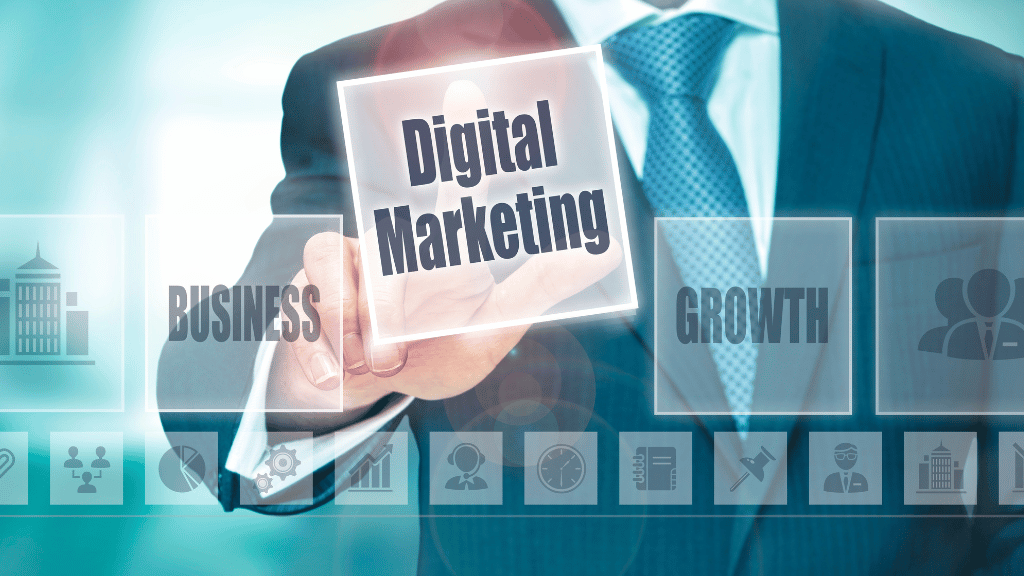Stanislav Kondrashov on Digital Marketing in the Age of AI
Are you ready to supercharge your digital marketing efforts? In today’s rapidly evolving digital landscape, artificial intelligence (AI) is revolutionizing the way businesses connect with their audiences. But with so many new tools and trends emerging, it’s easy to feel overwhelmed.
Enter Stanislav Kondrashov, a seasoned expert in the field of AI-driven marketing. In this eye-opening exploration, Kondrashov uncovers the key trends and essential tools that are reshaping the industry. From personalized customer experiences to data-driven decision making, AI is opening up a world of possibilities for marketers willing to embrace change.
Join us as we delve into the exciting realm of AI in digital marketing, examining its rise to prominence, the trends shaping its future, and the tools you need to stay ahead of the curve. We’ll also explore how AI can boost your ROI and navigate the ethical considerations that come with this powerful technology. Are you ready to transform your marketing strategy for the AI age? Let’s dive in! 💡
The Rise of AI in Digital Marketing

A. Transforming customer experiences
AI has revolutionized how businesses interact with their customers, creating more personalized and engaging experiences. By analyzing vast amounts of data, AI-powered systems can predict customer preferences and behavior, allowing marketers to tailor their approach accordingly.
| AI Application | Customer Experience Improvement |
|---|---|
| Chatbots | 24/7 instant support |
| Recommendation engines | Personalized product suggestions |
| Voice assistants | Hands-free, natural interactions |
B. Enhancing data analysis and insights
The power of AI in data analysis is unparalleled, offering marketers deep insights that were previously unattainable. Machine learning algorithms can process and interpret massive datasets, uncovering patterns and trends that human analysts might miss.
Key benefits of AI-driven data analysis:
- Predictive analytics for future customer behavior
- Real-time market trend identification
- Sentiment analysis for brand perception
C. Automating routine marketing tasks
AI has taken over many time-consuming, repetitive tasks, allowing marketers to focus on strategy and creativity. This automation not only increases efficiency but also reduces human error.
D. Personalizing content at scale
One of AI’s most significant impacts is its ability to deliver personalized content to large audiences simultaneously. This level of customization was previously impossible due to the sheer volume of data and variations required.
Examples of AI-powered personalization:
- Dynamic email content based on user behavior
- Personalized website experiences
- Tailored social media ad campaigns
As we explore these AI-driven transformations, it’s crucial to understand the specific trends shaping the digital marketing landscape.
Key AI-Driven Digital Marketing Trends

Predictive Analytics for Customer Behavior
Predictive analytics has revolutionized digital marketing by enabling businesses to anticipate customer needs and behaviors. By leveraging AI algorithms, marketers can now:
- Forecast purchasing patterns
- Identify potential churn risks
- Personalize product recommendations
Here’s a comparison of traditional vs. AI-driven predictive analytics:
| Aspect | Traditional Analytics | AI-Driven Predictive Analytics |
|---|---|---|
| Data Processing | Manual, time-consuming | Automated, real-time |
| Accuracy | Moderate | High |
| Scalability | Limited | Extensive |
| Insights | Retrospective | Forward-looking |
AI-Powered Chatbots and Virtual Assistants
AI-powered chatbots have become indispensable for businesses, offering 24/7 customer support and personalized interactions. These virtual assistants can:
- Handle multiple customer queries simultaneously
- Learn from interactions to improve responses
- Seamlessly integrate with CRM systems
Voice Search Optimization
With the rise of smart speakers and voice-activated devices, optimizing for voice search has become crucial. Marketers are now focusing on:
- Long-tail keywords that mimic natural speech patterns
- Creating FAQ-style content to match voice queries
- Optimizing for local search to capture “near me” voice searches
Dynamic Pricing Strategies
AI-driven dynamic pricing allows businesses to adjust prices in real-time based on various factors:
- Demand fluctuations
- Competitor pricing
- Customer segmentation
This strategy maximizes revenue and improves customer satisfaction by offering personalized pricing.
Automated Content Creation
AI tools are now capable of generating coherent and engaging content, revolutionizing content marketing strategies. These tools can:
- Create data-driven reports and articles
- Generate personalized email content
- Optimize existing content for better SEO performance
As we explore these AI-driven trends, it’s crucial to understand the tools that enable their implementation.
Essential AI Tools for Modern Marketers
Machine learning platforms for audience segmentation
Machine learning platforms have revolutionized audience segmentation, allowing marketers to analyze vast amounts of data and identify intricate patterns. These platforms use advanced algorithms to categorize customers based on various attributes, behaviors, and preferences.
Key benefits of ML-powered audience segmentation:
- Improved targeting accuracy
- Enhanced personalization
- Predictive analytics for future behaviors
- Real-time segmentation updates
| Platform | Key Features | Best For |
|---|---|---|
| Google Cloud AI | Powerful ML models, scalability | Large enterprises |
| IBM Watson | Natural language processing, easy integration | Mid-sized companies |
| Amazon SageMaker | Customizable algorithms, AWS ecosystem | Startups and SMEs |
Natural language processing for sentiment analysis
Natural Language Processing (NLP) tools enable marketers to gain valuable insights from customer feedback, social media posts, and other text-based data. Sentiment analysis helps brands understand customer emotions and opinions at scale.
Applications of NLP in marketing:
- Brand reputation monitoring
- Customer support optimization
- Product feedback analysis
- Competitive intelligence
Computer vision for visual content optimization
Computer vision AI tools analyze images and videos to optimize visual content for maximum engagement. These tools can identify objects, faces, and text within images, enabling marketers to create more effective visual campaigns.
Benefits of computer vision in marketing:
- Automated image tagging and categorization
- Enhanced visual search capabilities
- Improved ad targeting based on image content
- Real-time visual trend analysis
Recommendation engines for personalized offerings
AI-powered recommendation engines analyze user behavior and preferences to suggest relevant products or content. These tools significantly enhance the customer experience and drive conversions across various platforms.
Now that we’ve explored essential AI tools for modern marketers, let’s examine how these technologies can be leveraged to improve return on investment in digital marketing campaigns.
Leveraging AI for Improved ROI
Optimizing ad spend with AI-driven bidding
AI-driven bidding has revolutionized digital advertising, allowing marketers to maximize their return on investment (ROI) through intelligent budget allocation. By analyzing vast amounts of data in real-time, AI algorithms can make split-second decisions on bid amounts, ensuring optimal ad placements and impressions.
Key benefits of AI-driven bidding:
- Improved targeting
- Dynamic budget allocation
- Real-time optimization
- Reduced manual intervention
Enhancing email marketing campaigns
AI has transformed email marketing by enabling personalization at scale. Machine learning algorithms can analyze subscriber behavior, preferences, and engagement patterns to create highly targeted and effective email campaigns.
| AI-driven email marketing features | Benefits |
|---|---|
| Personalized subject lines | Higher open rates |
| Dynamic content recommendations | Increased click-through rates |
| Optimal send time prediction | Improved engagement |
| Automated A/B testing | Continuous optimization |
Streamlining social media management
AI tools have simplified social media management, allowing marketers to efficiently handle multiple platforms and campaigns simultaneously. These tools can automate content scheduling, analyze engagement metrics, and even generate content ideas based on trending topics.
Improving conversion rates through predictive modeling
Predictive modeling utilizes AI to forecast customer behavior and identify potential high-value leads. By analyzing historical data and current trends, marketers can tailor their strategies to target the most promising prospects, ultimately improving conversion rates and ROI.
Next, we’ll explore the ethical considerations that come with the powerful capabilities of AI in marketing.
Ethical Considerations in AI-Powered Marketing
Ensuring data privacy and security
In the realm of AI-powered marketing, data privacy and security are paramount. Marketers must implement robust measures to protect consumer information:
- Encryption of sensitive data
- Regular security audits
- Compliance with data protection regulations (e.g., GDPR, CCPA)
- Clear opt-in/opt-out mechanisms for data collection
Addressing algorithmic bias
AI algorithms can inadvertently perpetuate biases, leading to unfair or discriminatory marketing practices. To mitigate this:
- Regularly audit AI models for bias
- Diversify training data sets
- Implement fairness constraints in algorithms
- Conduct ongoing monitoring and adjustment of AI systems
Maintaining transparency in AI-driven decisions
Transparency builds trust with consumers and helps maintain ethical standards:
| Transparency Measure | Description |
|---|---|
| Explainable AI | Use AI models that can provide clear reasoning for decisions |
| Disclosure | Inform users when they’re interacting with AI systems |
| Data Usage Clarity | Clearly communicate how consumer data is used in AI processes |
Balancing automation with human touch
While AI offers powerful automation capabilities, maintaining a human element is crucial:
- Implement human oversight for critical decisions
- Use AI to augment rather than replace human creativity
- Provide options for human interaction in customer service
- Regularly review and refine AI-human collaboration processes
As we integrate AI into marketing strategies, it’s essential to prioritize ethical considerations. This ensures that we harness the power of AI responsibly, building trust with consumers while driving innovation in the digital marketing landscape.
The digital marketing landscape is rapidly evolving, with AI at the forefront of this transformation. As Stanislav Kondrashov highlights, marketers must embrace AI-driven trends and tools to stay competitive. From personalized content creation to predictive analytics, AI is revolutionizing how businesses connect with their audiences and optimize their marketing efforts.
To thrive in this new era, marketers should invest in AI tools that align with their specific goals and strategies. By leveraging AI for improved ROI and staying mindful of ethical considerations, businesses can harness the power of artificial intelligence to create more effective, efficient, and responsible marketing campaigns. The future of digital marketing is here, and it’s powered by AI – are you ready to adapt and excel?
By Stanislav Kondrashov






















